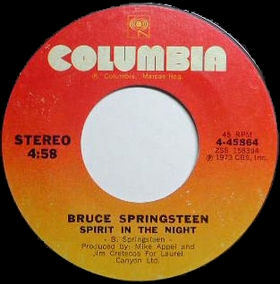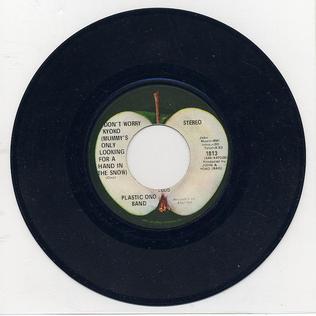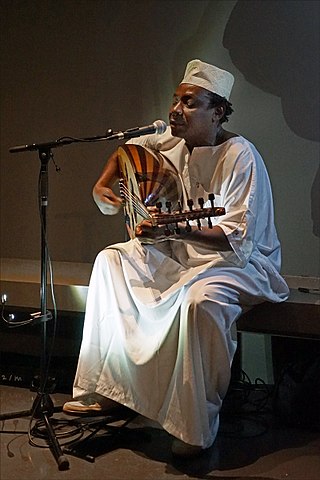Related Research Articles

Tanzania, officially the United Republic of Tanzania, is a country in East Africa within the African Great Lakes region. It borders Uganda to the north; Kenya to the northeast; Comoro Islands and the Indian Ocean to the east; Mozambique and Malawi to the south; Zambia to the southwest; and Rwanda, Burundi, and the Democratic Republic of the Congo to the west. Mount Kilimanjaro, Africa's highest mountain, is in northeastern Tanzania. According to the United Nations, Tanzania has a population of 63.59 million, making it the most populous country located entirely south of the equator.

Zanzibar is an insular semi-autonomous province which united with Tanganyika in 1964 to form the United Republic of Tanzania. It is an archipelago in the Indian Ocean, 25–50 kilometres (16–31 mi) off the coast of the mainland, and consists of many small islands and two large ones: Unguja and Pemba Island. The capital is Zanzibar City, located on the island of Unguja. Its historic centre, Stone Town, is a World Heritage Site.

As it is in other countries, the music in Tanzania is constantly undergoing changes, and varies by location, people, settings and occasion. The five music genres in Tanzania, as defined by BASATA are, ngoma, dansi, kwaya, and taarab, with bongo flava being added in 2001. Singeli has since the mid-2000ss been an unofficial music of uswahilini, unplanned communities in Dar es Salaam, and is the newest mainstream genre since 2020.
The Comoros is a group of islands in the Indian Ocean, mostly an independent nation but also including the French territory of Mayotte. It is historically linked to both East Africa and France, and now has a strong Malagasy influence. Zanzibar's taarab music, however, remains the most influential genre on the islands, and a Comorian version called twarab is popular. Leading twarab bands include Sambeco and Belle Lumière, as well as singers including Chamsia Sagaf and Mohammed Hassan.

Taarab is a music genre popular in Tanzania and Kenya. It is influenced by the musical traditions of the African Great Lakes, North Africa, the Middle East, and the Indian subcontinent. Taarab rose to prominence in 1928 with the advent of the genre's first star, Siti binti Saad.

Following Tanganyika's independence (1961) and unification with Zanzibar (1964), leading to the formation of the state of Tanzania, President Julius Nyerere emphasised a need to construct a national identity for the citizens of the new country. To achieve this, Nyerere provided what has been regarded by some commentators as one of the most successful cases of ethnic repression and identity transformation in Africa.

Fatima binti Baraka, also known as Bi Kidude, was a Zanzibari-born Tanzanian Taarab singer. She has been called the "queen of Taarab and Unyago music" and was inspired by Siti binti Saad. Born in the village of Mfagimaringo, Bi Kidude was the daughter of a coconut seller in colonial Zanzibar. Bi Kidude's exact date of birth is unknown and much of her life story is uncorroborated, but she was believed to be the oldest touring singer in the world before her death. In 2005, Bi Kidude received the WOMEX award for her contribution to music and culture in Zanzibar. She was the subject of two documentaries by film maker Andrew Jones.

Siti binti Saad (c.1880–1950) was a pioneering artist in the taarab genre of east African music. The first East African singer to make commercial recordings, she made over 150 gramophone recordings during her lifetime. She also introduced a new Indian-inspired element of dance and pantomime into taarab music, called natiki. In an era in which male singers predominated, she was a pioneer as a woman singer in the genre. In contrast to previous singers who only sang in Arabic, she also sang in Swahili. She sang in cities of the coast of Tanganyika and Zanzibar.

"Spirit in the Night" is a song written and originally recorded by American singer/songwriter Bruce Springsteen for his debut album Greetings from Asbury Park, N.J. (1973). It was also the second single released from the album. A cover version performed by Manfred Mann's Earth Band, was released on the album Nightingales and Bombers and as a Top 40 single.

A tabla is a pair of twin hand drums from the Indian subcontinent, that are somewhat similar in shape to the bongos. Since the 18th century, it has been the principal percussion instrument in Hindustani classical music, where it may be played solo, as accompaniment with other instruments and vocals, and as a part of larger ensembles. It is frequently played in popular and folk music performances in India, Bangladesh, Afghanistan, Pakistan, Nepal and Sri Lanka. The tabla is an essential instrument in the bhakti devotional traditions of Hinduism and Sikhism, such as during bhajan and kirtan singing. It is one of the main qawali instrument used by Sufi musicians. The instrument is also featured in dance performances such as Kathak.Tabla is a rythmic instrument.
Tanzania Music Awards are national music awards held annually in Tanzania. They are also known as the Kilimanjaro Music Awards or the Kili Music Awards after their sponsor. The awards were established in 1999 by the National Arts Council (BASATA) under the Tanzanian Ministry of Education and Culture.

Nungwi, or Ras Nungwi, is a large village located in the far northern end of the island of Zanzibar. With a population of about 5,563, Nungwi is the second- or third-largest settlement on the island, possibly smaller than Makunduchi. It is situated in the Nungwi Ward in the Kaskazini A District of the Unguja North Region. It is about 35 miles (56 km) north of Zanzibar Town on the Nungwi Peninsula, about an hour drive from Stone Town. To the south Nungwi shares a border with the neighboring Matemwe- and Tazari villages. Nungwi was traditionally a fishing village and dhow-building center, but is now a popular tourist destination, and for instance recognized in CNN’s list of "100 best beaches of the world" in 2014. West Nungwi has changed a lot since the 1990s and is now a popular tourist destination with numerous resorts, restaurants, bars, stores, etc. East Nungwi is quieter and generally more laid-back.
Zenji flava is a common nickname for Zanzibari hip hop, a genre that began to develop in the 1990s. The name is made of zenji, which is slang for "Zanzibar", and flava, which is a corruption of "flavour", thus meaning "of Zanzibari taste". As with bongo flava, i.e., Tanzanian mainland's hip hop, zenji flava is usually sung in swahili; the main difference between the two subgenres is that Zanzibari hip hop also reflects some influence of taarab, and thus indirectly of Arab music and Indian music. Notable zenji flava artists include Ali Haji. As Zenji flavour goes on it find itself as a sub part of Bongo flava as it has influence from the young generation of artists who want to cop with Bongo flava. like Offside trick, 2 berry now is separated to form two solo artists, Wazenji kijiwe and Shaka zulu, others are East connection which was made up with almost seven groups of artist including Offside trick Brooklyn, Four nature, Jumbo camp, Queen love, and K jam. It was in this time that Zenji flava was modernized with rapid growth in the number of artists.

Sauti za Busara is an African music festival, held every year in February in Zanzibar, Tanzania. It is centred in the Old Fort, with fringe events taking place at the same time around Stone Town - including a carnival street parade (Beni).
"Nica's Dream" is a jazz standard composed by Horace Silver in 1954. It is one of many songs written in tribute to jazz patroness Pannonica de Koenigswarter. The song was first recorded by the Jazz Messengers in 1956, and has since been recorded by many other artists. It features jazz melodic minor harmony with prominent minor-major 7th chords. Its first studio recording by Silver was on the Horace-Scope album.

"Don't Worry Kyoko " is a song by Yoko Ono that was originally released by Plastic Ono Band in October 1969 as the B-side of John Lennon's single "Cold Turkey" and was later released on Ono's 1971 album Fly. Several live versions have been released, including on Live Peace in Toronto 1969 and Some Time in New York City in 1972. An early version was titled "Mum's Only Looking for Her Hand in the Snow". It has been covered by several other artists.
Up to the second half of the 20th century, Tanzanian literature was primarily oral. Major oral literary forms include folktales, poems, riddles, proverbs, and songs. The majority of the oral literature in Tanzania that has been recorded is in Swahili, though each of the country's languages has its own oral tradition. The country's oral literature is currently declining because of social changes that make transmission of oral literature more difficult and because of the devaluation of oral literature that has accompanied Tanzania's development. Tanzania's written literary tradition has produced relatively few writers and works; Tanzania does not have a strong reading culture, and books are often expensive and hard to come by. Most Tanzanian literature is orally performed or written in Swahili, and a smaller number of works have been published in English. Major figures in Tanzanian modern literature include Shaaban Robert, Muhammed Said Abdulla, Aniceti Kitereza, Ebrahim Hussein, Abdulrazak Gurnah and Penina Muhando.

The Dhow Countries Music Academy (DCMA) is the first and only music school in Zanzibar, Tanzania, located in Old Customs House in Stone Town. The Academy promotes and preserves music heritage of the "Dhow Region" which include countries along the shores of the Indian Ocean and the Persian Gulf. Particular emphasis is being placed on teaching traditional music styles, such as Taarab, Kidumbaki or Ngoma.

Mohamed Issa Haji 'Matona is a Zanzibarian musician. He is a founder and the artistic director of Zanzibar's Dhow Countries Music Academy.
Haji Gora Haji was a Swahili-language poet, lyricist, and writer from the Zanzibar archipelago. He channeled his expansive knowledge of the culture and society of the Swahili coast, especially his homeland of Tumbatu, into his works. For his work inspired by the seascape of his home, he has been called "The Old Typhoon". He worked in a multitude of forms, from songs, stories, and epics to a full-length novel. His compositions and verse were frequently on Tanzanian radio.
References
- ↑ Lawrence G. Potter (6 January 2009). The Persian Gulf in History. Palgrave Macmillan. pp. 177–. ISBN 978-0-230-61845-9.
- ↑ Dr Janet Topp Fargion (26 February 2014). Taarab Music in Zanzibar in the Twentieth Century: A Story of ‘Old is Gold’ and Flying Spirits. Ashgate Publishing, Ltd. pp. 108–. ISBN 978-0-7546-5554-1.
- ↑ Frank Tenaille (2002). Music is the Weapon of the Future: Fifty Years of African Popular Music. Chicago Review Press. pp. 273–. ISBN 978-1-55652-450-9.